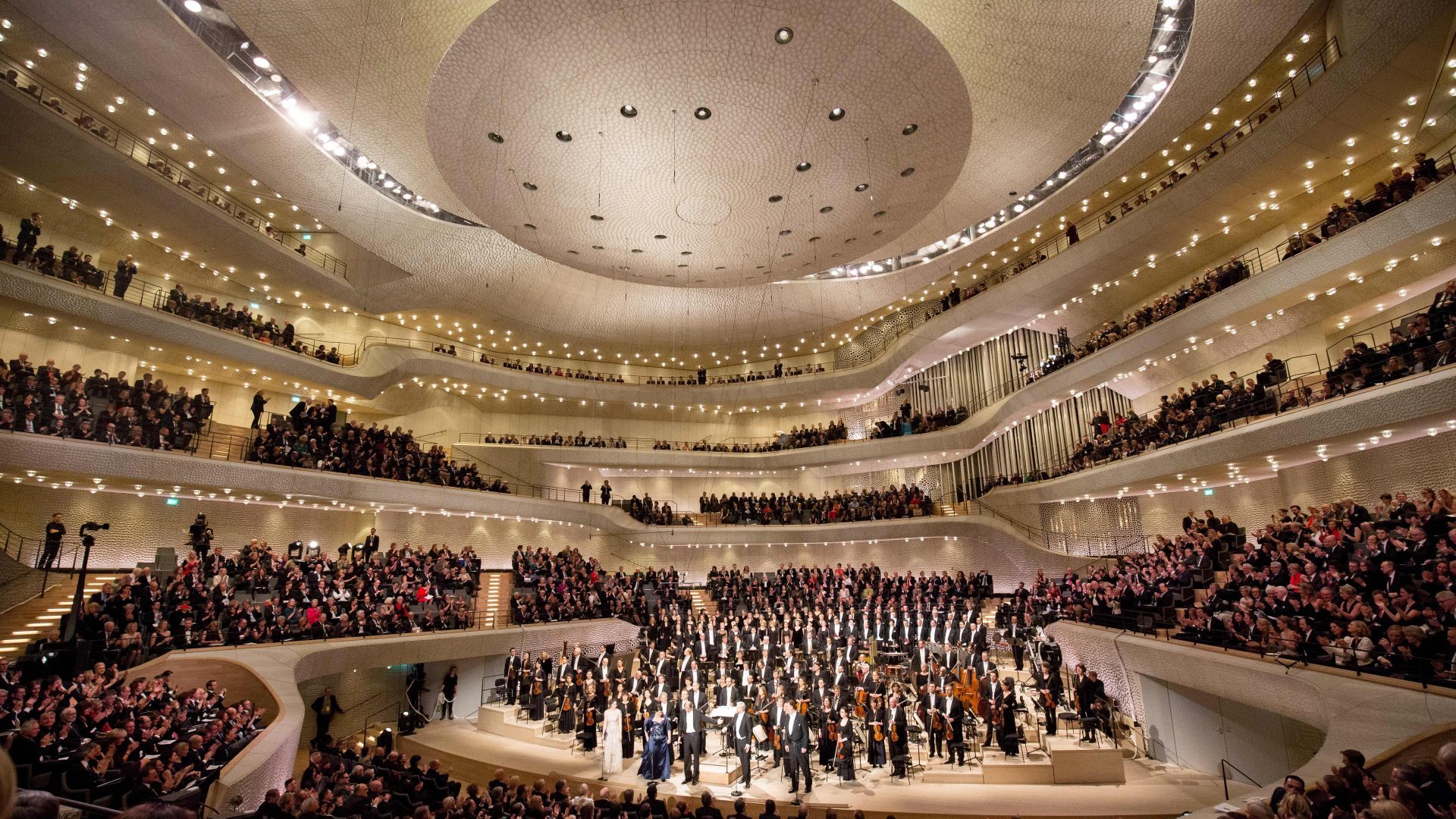Public service radio orchestras have been one of the great civilising forces of the last century. That may be an unsexy proposition but, as the BBC Philharmonic celebrates its 100th birthday, it is one that is important not just for Europe’s past, but its future too.
Originating in the earliest days of public service radio – when mass communication, mass culture and technological innovation came together to transform how we live – in the turbulent first half of the last century, Europe’s taxpayer-funded orchestras have played far more than just a cultural role in the lives of their countries.
Going far beyond their remit of performing for broadcast, these orchestras have become associated with cultural vibrancy in the regions, the democratisation of high-quality music, and artistic freedom. Free from commercial constraints, they have become known for their diverse programming and for premiering new music.
The BBC Philharmonic had modest beginnings. The 12-piece 2ZY Orchestra was the resident ensemble of the Manchester radio station with that call sign. Quickly disbanded after the foundation of the more prestigious London-based BBC Symphony Orchestra in 1930, the 2ZY had nevertheless given the first broadcast performances of Holst’s The Planets and Elgar’s Enigma Variations and The Dream of Gerontius, and it was soon re-established as the BBC Northern Orchestra as demand for BBC output rapidly increased.
Renamed the BBC Philharmonic in 1982, the orchestra remains based in Greater Manchester, in Salford Quays, and maintains strong links to other institutions in the region as part of its mission to broaden access to music. As it has explored well beyond the standard repertoire, it has collaborated with Clean Bandit, Jarvis Cocker and the Wombats. The BBC’s four other orchestras are all only slightly younger than the Philharmonic and can boast
similar traditions.
In Germany, the radio orchestra is a major part of the classical music ecosystem. While Leipzig’s MDR Symphony Orchestra and the RSO Berlin will celebrate their centenaries next year, and Frankfurt’s HR Symphony Orchestra was founded in 1929, many of them are postwar entities, founded by the allies as part of the effort to rebuild community and culture in a shattered Germany.
The NDR Elbphilharmonie Orchestra was created by the BBC German Service in 1945 under the auspices of Radio Hamburg – the only radio station left operating in the north of the country at that time. That the orchestra accompanied Yehudi Menuhin when he played his famous concert for displaced persons at Bergen-Belsen just three months after the camp’s liberation is indicative of the healing role such orchestras played in Germany in those years.
France has two radio orchestras – the National Orchestra of France and the Radio France Philharmonic Orchestra. Established only a few years before the second world war, they survived being co-opted by the Vichy government and reformed after the liberation to become standard bearers of French musical life in the decades that followed.
Today, European orchestras echo the principles the BBC orchestras embody. The celebrated Bavarian Radio Symphony Orchestra is based far from Berlin, offers a broad agenda of outreach activities and has a reputation for programming contemporary music. The Radio France Philharmonic Orchestra tours widely, runs programmes in schools and prisons, and a series of concerts, Hip Hop Symphonique, has seen daring collaborations.
But as governments look to cut funding for public broadcasting, whether in a genuine belt-tightening exercise or for more nefarious, self-serving reasons, these institutions are under threat.
The Stuttgart Radio Symphony Orchestra and the Southwest German Radio Symphony Orchestra were merged in a cost-cutting measure in 2016, and a similar plan to merge the two French radio orchestras amid a budget crisis was one of the issues that provoked lengthy strikes in 2015. Just last month Macron’s plans to abolish the licence fee and merge the four French public broadcasting arms into a single company – something that is unlikely to be positive for the orchestras – prompted further strikes.
And here at home, despite a report published earlier this year finding myriad benefits of the BBC’s orchestras to our cultural life, it was announced last month that they would receive less funding following the culture minister’s licence fee freeze and would have to make up the shortfall through commercial activity, such as ticket sales. Plurality of programming dies once you have to play what puts bums on seats, and when culture as a public service becomes devalued, we are all profoundly poorer for it.
EUROPEAN RADIO ORCHESTRAS in five songs
Elgar, Imperial March
(BBC Philharmonic Orchestra)
The embryonic BBC Philharmonic, the 2ZY Orchestra, gave the first broadcast performance of Elgar’s Enigma Variations in the 1920s. George Hurst conducted this performance some four decades later when it was known as the BBC Northern Orchestra.
John Grant, Where Dreams Go To Die
(BBC Philharmonic Orchestra)
Grant’s typically dark, lyrically brilliant, autobiographical song was recorded at the Orchestra’s Salford base in 2014 and is typical of the inventive programming it has become known for.
Chopin, Fantasy on Polish Airs
(NDR Elbphilharmonie Orchestra)
Conducted by Krzysztof Urbański and featuring Canadian piano prodigy Jan
Lisiecki, this 2016 performance was by the orchestra founded by the BBC in a devastated postwar Hamburg.
Ravel, L’enfant et les sortilèges
(Radio France Philharmonic Orchestra)
Finnish conductor Mikko Franck, who has been musical director of the Radio France Philharmonic Orchestra since 2015, presided over this recording.
Wagner, Walkürenritt
(Bavarian Radio Symphony Orchestra)
Simon Rattle was a guest conductor on this recording, but will become chief
conductor of this orchestra, based in Munich, from the 2023/24 season.




